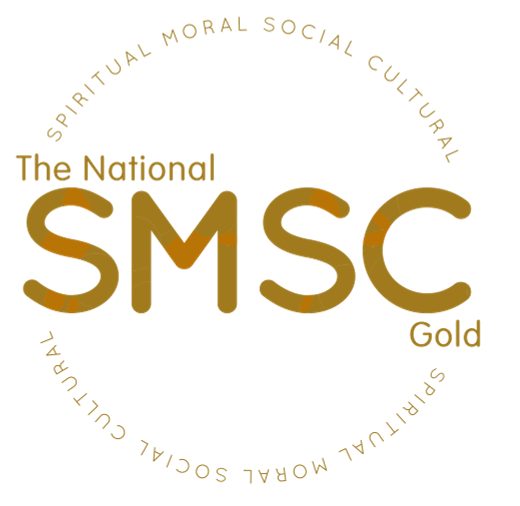School Information
RIGHTS OF ACCESS TO PUPIL INFORMATION
There are two distinct rights of access to information held by schools about pupils.
Under the General Data Protection Regulations 2018 a pupil has a right to request access to their own personal information. In certain circumstances requests may be made by a parent on behalf of their child (see below)
The right of parents to have access to curricular and educational records relating to their child as defined within the Education (Pupil Information) (England) Regulations 2005.
These procedures relate to the above mentioned rights.
DEALING WITH A REQUEST
For any request of personal information, then you must email: This email address is being protected from spambots. You need JavaScript enabled to view it.
The identity of the requestor will then be established before the disclosure of any personal information, and checks should also be carried out regarding proof of relationship to the child.
Evidence of identity can be established by requesting production of:
- Passport
- Driving licence
- Utility bills with the current address
- Birth / Marriage certificate
- P45/P60
- Credit Card or Mortgage statement - this list is not exhaustive
Any individual has the right of access to information held about them. However with children, this is dependent upon their capacity to understand. As a general rule, a child of 12 or older is expected to be mature enough to understand the request they are making. If the child cannot understand the nature of the request, someone with parental responsibility can ask for the information on the child’s behalf. We may discuss the request with the child and take their views into account when making a decision
The school may make a charge for the provision of information, dependent upon the following:
- Should the information requested contain the educational record then the amount charged will be dependent upon the number of pages provided.
- Should the information requested be personal information that does not include any information contained within educational records, schools cannot charge to provide it. However we can charge a reasonable administrative fee where the request is considered manifestly unfounded or excessive and for additional copies of a request.
- The response time for subject access requests, once officially received, is 1 month (irrespective of school holiday periods, weekends etc.). However, the time to respond does not have to start until we have verified your identity.
- Requests for information from pupils or parents for access to information classed as being part of the education record must be responded to within 15 school days.
- There are some exemptions to the right to subject access that apply in certain circumstances or to certain types of personal information. Therefore all information must be reviewed prior to disclosure.
- Responding to a request may involve providing information relating to another individual (a third party). Third party information is that which identifies another pupil/parent or has been provided by another agency, such as the
- Police, Local Authority, Health Care professional or another school. Before disclosing third party information consent should normally be obtained. There is still a need to adhere to above statutory timescale.
- Any information which may cause serious harm to the physical or mental health or emotional condition of the pupil or another individual involved should not be disclosed, nor should information that would reveal that the child is at risk of abuse, or information relating to court proceedings.
- If there are concerns over the disclosure of information then additional advice should be sought from the DPO and the School’s Safeguarding team.
- Where redaction (information edited/removed) has taken place then a full copy of the information provided should be retained in order to establish, if a complaint is made, what was redacted and why.
- Information disclosed should be clear, thus any codes or technical terms will need to be clarified and explained. If information contained within the disclosure is difficult to read or illegible, then it should be retyped.
- Information can be viewed at the school with a member of staff on hand to help and explain matters if requested, or provided at face to face handover. The views of the applicant should be taken into account when considering the method of delivery. If the applicant has asked for the information to be posted then special next day delivery or recorded delivery postal service must be used.
COMPLAINTS
Complaints about the above procedures should be made to the Data Protection Officer.
Complaints which are not appropriate to be dealt with through the school’s complaint procedure can be dealt with by the Information Commissioner. Contact details of both will be provided with the disclosure information.
Spiritual, Moral, Social and Cultural Development
The Spiritual, Moral, Social and Cultural (SMSC) development of our pupils is inherent in our curriculum, our behaviours and the culture of the school.
Bromley Beacon Academy strives to develop pupils that are responsible and respectful with a strong moral purpose. SMSC supports this development so that our pupils become life-long learners, who play constructive roles as citizens in our diverse and multi-cultural society.
It is the responsibility of all staff at Bromley Beacon Academy to ensure SMSC development takes place in all lessons and around the school at all times.
SMSC has four different aspects, formulated to help our pupils grow into responsible members of the community.
We encourage Bromley Beacon Academy students to display the following traits:
Spiritual- Explore beliefs and experience; respect faiths, feelings and values; enjoy learning about oneself, others and the surrounding world; use imagination and creativity; reflect.
Moral- Recognise right and wrong; respect the law; understand consequences; investigate moral and ethical issues; offer reasoned views.
Social- Investigate moral issues; appreciate diverse viewpoints; participate, volunteer and cooperate; resolve conflict; engage with the fundamental values of British democracy.
Cultural- Appreciate cultural influences; participate in culture opportunities; understand, accept, respect and celebrate diversity.
Promoting British Values
Bromley Beacon Academy is committed to serving its community. It recognises the multi-cultural, multi faith and ever-changing nature of the Britain. It also understands the vital role it has in ensuring that groups or individuals within the school are not subjected to intimidation or radicalisation by those wishing to unduly, or illegally, influence them.
We follow equal opportunities guidance which guarantees that there will be no discrimination against any individual or group, regardless of faith, ethnicity, gender, sexuality, political or financial status, or similar. Bromley Beacon Academy is dedicated to preparing students for their adult life beyond the formal examined curriculum and ensuring that it promotes and reinforces British values to all its Pupils.
The Government emphasises that schools are required to ensure that key ‘British Values’ are taught in all UK schools. The five British Values are:
- Democracy
- The rule of law
- Individual liberty
- Mutual respect
- Tolerance of those of different faiths and beliefs
The examples that follow show some of the many ways Bromley Beacon Academy seeks to embed British values.
Democracy
The principle of democracy is consistently being reinforced at Bromley Beacon Academy, with democracy processes being used for important decisions within the school community. For example, School Council decisions and ideas as well as students and parents providing valuable input into school/ Trust policies.
The rule of law
The importance of laws, whether they be those that govern the class, the school, or the country, are consistently reinforced at Bromley Beacon Academy. Students are taught the rules and expectations of the school which are highlighted in our Behaviour Policy. Pupils are taught the value and the reasons behind laws that govern and protect us, the responsibilities that this involves and the consequences when laws are broken. Visits from authorities such as the Police and Fire Service reinforce this message.
Individual liberty
At Bromley Beacon Academy/ Bromley Trust Academy, Pupils are actively encouraged to make independent choices, with the knowledge that they are in a safe, secure and supportive environment. Staff at Bromley Beacon Academy educate and provide boundaries for Pupils to make informed choices, through a safe environment and an empowering education.
Pupils are encouraged to know, understand and exercise their rights and personal freedoms and are advised on how to exercise these safely, for example through e-safety, PSHE and Form Time work.
Bromley Beacon Academy has a robust anti-bullying culture and has in place a comprehensive Behaviour Policy.
Mutual Respect
Respect is a strong part of Bromley Beacon Academy and is part of its core values. Students learn that their behaviours have an effect on their own rights and those of others. All members of the school community treat each other with respect and this is reiterated through its teaching and learning environments.
Tolerance of those of different faiths and beliefs
This is achieved through equipping Pupils with the ability to understand their place in a culturally diverse society and by giving the opportunities to experience such diversity within the school community.
Bromley Beacon Academy strives endlessly to ensure that its Pupils leave with the strongest foundation of values upon which to build a successful life and a successful contribution to our Society.
Spiritual, Moral, Social and Cultural Development
The Spiritual, Moral, Social and Cultural (SMSC) development of our pupils is inherent in our curriculum, our behaviours and the culture of the school.
Bromley Beacon Academy strives to develop pupils that are responsible and respectful with a strong moral purpose. SMSC supports this development so that our pupils become life-long learners, who play constructive roles as citizens in our diverse and multi-cultural society.
It is the responsibility of all staff at Bromley Beacon Academy to ensure SMSC development takes place in all lessons and around the school at all times.
SMSC has four different aspects, formulated to help our pupils grow into responsible members of the community.
We encourage Bromley Beacon Academy students to display the following traits:
Spiritual Explore beliefs and experience; respect faiths, feelings and values; enjoy learning about oneself, others and the surrounding world; use imagination and creativity; reflect.
Moral Recognise right and wrong; respect the law; understand consequences; investigate moral and ethical issues; offer reasoned views.
Social Investigate moral issues; appreciate diverse viewpoints; participate, volunteer and cooperate; resolve conflict; engage with the fundamental values of British democracy.
Cultural Appreciate cultural influences; participate in culture opportunities; understand, accept, respect and celebrate diversity.
Promoting British Values
Bromley Beacon Academy is committed to serving its community. It recognises the multi-cultural, multi faith and ever-changing nature of the Britain. It also understands the vital role it has in ensuring that groups or individuals within the school are not subjected to intimidation or radicalisation by those wishing to unduly, or illegally, influence them.
We follow equal opportunities guidance which guarantees that there will be no discrimination against any individual or group, regardless of faith, ethnicity, gender, sexuality, political or financial status, or similar. Bromley Beacon Academy is dedicated to preparing students for their adult life beyond the formal examined curriculum and ensuring that it promotes and reinforces British values to all its Pupils.
The Government emphasises that schools are required to ensure that key ‘British Values’ are taught in all UK schools. The five British Values are:
- Democracy
- The rule of law
- Individual liberty
- Mutual respect
- Tolerance of those of different faiths and beliefs
The examples that follow show some of the many ways Bromley Beacon Academy seeks to embed British values.
Democracy
The principle of democracy is consistently being reinforced at Bromley Beacon Academy, with democracy processes being used for important decisions within the school community. For example, School Council decisions and ideas as well as students and parents providing valuable input into school/ Trust policies.
The rule of law
The importance of laws, whether they be those that govern the class, the school, or the country, are consistently reinforced at Bromley Beacon Academy. Students are taught the rules and expectations of the school which are highlighted in our Behaviour Policy. Pupils are taught the value and the reasons behind laws that govern and protect us, the responsibilities that this involves and the consequences when laws are broken. Visits from authorities such as the Police and Fire Service reinforce this message.
Individual liberty
At Bromley Beacon Academy/ Bromley Trust Academy, Pupils are actively encouraged to make independent choices, with the knowledge that they are in a safe, secure and supportive environment. Staff at Bromley Beacon Academy educate and provide boundaries for Pupils to make informed choices, through a safe environment and an empowering education.
Pupils are encouraged to know, understand and exercise their rights and personal freedoms and are advised on how to exercise these safely, for example through e-safety, PSHE and Form Time work.
Bromley Beacon Academy has a robust anti-bullying culture and has in place a comprehensive Behaviour Policy.
Mutual Respect
Respect is a strong part of Bromley Beacon Academy and is part of its core values. Students learn that their behaviours have an effect on their own rights and those of others. All members of the school community treat each other with respect and this is reiterated through its teaching and learning environments.
Tolerance of those of different faiths and beliefs
This is achieved through equipping Pupils with the ability to understand their place in a culturally diverse society and by giving the opportunities to experience such diversity within the school community.
Bromley Beacon Academy strives endlessly to ensure that its Pupils leave with the strongest foundation of values upon which to build a successful life and a successful contribution to our Society.
As part of London South East Academies Trust, Bromley Beacon Academy is committed to safeguarding and promoting the welfare of children and young people and requires all staff to share this commitment. Within our school, the Designated Safeguarding Lead (DSL) has overall responsibility for safeguarding and child protection and can be contacted directly in order to discuss any concerns. The Designated Safeguarding Lead is supported in this role by the Head of School and Deputy Designated Safeguarding Leads (DDSLs) across both sites.
Regular and robust training is delivered to all staff within the trust with the support of Bromley Safeguarding Children’s Board, Local Authority Designated Officer and using the Ofsted criteria. This includes the delivery of annual and specific staff training relating to Child Sexual Exploitation, Female Genital Mutilation, Children Missing Education, Prevent and British Values; in addition to clear structured support for staff to address challenging and complex safeguarding concerns. Our Designated Safeguarding Trustee regularly participates and monitors our Policy and practice across the Trust Schools, which is updated and adapted in line with Local and National changes in legislation outside of the regular annual review.
At Bromley Beacon Academy, we endeavour to support the welfare and safety of all students by:
-
Promoting and maintaining a whole school culture of safeguarding awareness and proactive response to concerns.
-
Ensuring student welfare is the paramount concern and responsibility of all LSEAT staff, and staff are able to identify children who may be in need of extra help or who are likely to suffer significant harm.
-
Providing appropriate support and guidance to students to enable them to have a range of appropriate adults whom they feel confident to approach if they are in difficulty or have any worries.
-
Ensuring that safeguarding is embedded in the curriculum to enable students to stay safe, recognise when they don’t feel safe and identify who they might/can talk to help them.
-
Promoting a positive and supportive environment where students can develop a sense of being valued and heard in their own right.
-
Ensuring all steps are taken to maintain the school site security and student’s physical safety.
-
Working and communicating regularly with parents to build an understanding of the school’s responsibility to ensure the welfare of all students, including the need for external agency support when it is deemed necessary.
-
Providing regular whole safeguarding training creating a measured, generic approach to identifying and addressing concerns raised.
Safeguarding Leads:
- Designated Safeguarding Lead (DSL) - Andrea Townsley
- Deputy Designated Safeguarding Lead (DDSL) - Vic D'urso, Orpington site
- Deputy Designated Safeguarding Lead (DDSL) - Kane Jones, Orpington site
- Deputy Designated Safeguarding Lead (DDSL) - Mark Else, Bromley site
- Deputy Designated Safeguarding Lead (DDSL) - Sophie Grinham, Bromley site
- Child Looked After (CLA) Lead - Andrea Townsley
- Safeguarding Administrator - Elizabeth Burgess
- Safeguarding Link Trustee for Trust and Provision Boards - Denise James-Mason
- Group Head of Safeguarding, London and South East Education Group - Beth Moore
- Deputy CEO, London South East Academies Trust - Neil Miller
Please note all staff, including Agency Staff, are all suitably vetted to ensure the safety and wellbeing of all students is paramount.



